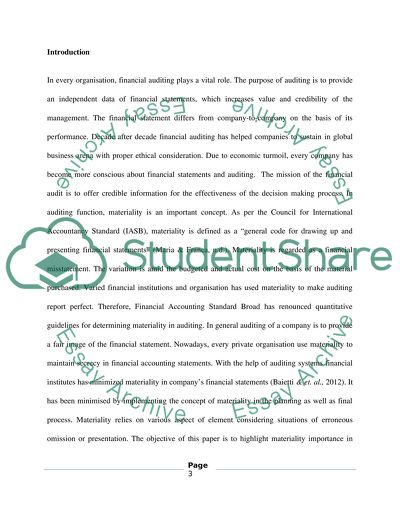Cite this document
(“Materiality in Auditing Essay Example | Topics and Well Written Essays - 1500 words”, n.d.)
Retrieved from https://studentshare.org/finance-accounting/1672225-materiality-in-auditing
Retrieved from https://studentshare.org/finance-accounting/1672225-materiality-in-auditing
(Materiality in Auditing Essay Example | Topics and Well Written Essays - 1500 Words)
https://studentshare.org/finance-accounting/1672225-materiality-in-auditing.
https://studentshare.org/finance-accounting/1672225-materiality-in-auditing.
“Materiality in Auditing Essay Example | Topics and Well Written Essays - 1500 Words”, n.d. https://studentshare.org/finance-accounting/1672225-materiality-in-auditing.


